MercoPress. South Atlantic News Agency
Tag: Europe Union
-
Thursday, January 18th 2018 - 09:48 UTC
Juncker renews offer to UK to stay in EU; Brexit is a catastrophe and “the blame is on many”

The European Union chief executive Jean-Claude Juncker renewed an offer to Britain on Wednesday to stay in the European Union and said he hoped that even if it goes through with Brexit it would apply to rejoin the bloc.
-
Saturday, January 13th 2018 - 09:17 UTC
EU sigh of relief: Germany's grand coalition en route to a “renewed marriage”

Chancellor Angela Merkel struck a deal with Social Democrat (SPD) rivals on Friday to open government coalition talks, easing months of uncertainty that has undermined Germany’s global role and raised questions about her political future. But the deal to revive a “grand coalition” that has governed since 2013 must be approved by an SPD congress planned for January 21.
-
Thursday, January 11th 2018 - 09:34 UTC
UK charm offensive in Germany to lobby for London's post Brexit financial services
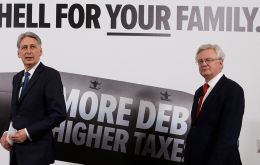
The German government on Wednesday sought to pour cold water over Britain's hopes of a bespoke post-Brexit arrangement for financial services. German Chancellor Angela Merkel's spokesman told reporters that Berlin's focus would remain on preserving a unified stance among the 27 EU nations as Brexit negotiations prepare to enter a critical phase. Britain's financial services industry is expected to be one the main battlegrounds in the next stage of talks.
-
Wednesday, January 10th 2018 - 10:38 UTC
Farage: Barnier doesn't understand why 17 million voted to leave the EU
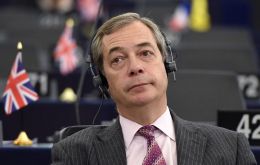
Nigel Farage, who as leader of the UK Independence Party was one of the leading campaigners for Britain to leave the European Union, crossed swords with one of his main EU adversaries. After meeting Michel Barnier, the EU’s chief Brexit negotiator, for about 30 minutes in Brussels, Farage said he was convinced that the Frenchman doesn’t understand why more than 17 million people voted for the UK to leave in the 2016 referendum.
-
Tuesday, January 9th 2018 - 09:34 UTC
Juncker convinced Brexit will happen, but is concerned about budget shortfall

European Commission chief Jean-Claude Juncker says he believes Brexit will go ahead and the EU should tackle its looming budget shortfall. “Don't believe those who say that it's not going to happen and that people in the UK have realized their error... I don't think that's going to be the case,” he told a Brussels conference.
-
Saturday, January 6th 2018 - 09:35 UTC
Europe and Mercosur scheduled to resume trade negotiations this month
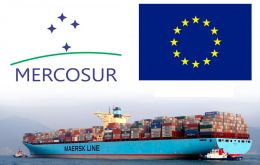
The European Commission and Mercosur are planning to resume negotiations to reach a new Association Agreement during this month. The Commissioner of the European Trade Commission, Cecilia Malmström, stated that, after the last negotiating round, which took place in early December, and after the attempt to reach an agreement in the framework of the last round of the World Trade Organization (WTO), held from 11 to 14 December, the agreement was very close and would be reached in a matter of weeks.
-
Friday, January 5th 2018 - 10:00 UTC
Controversy in Brazil for self imposed ban on sea food exports to Europe
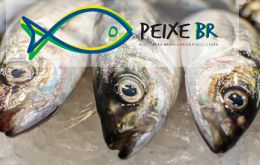
The Brazilian aquaculture association Peixe BR criticized the temporary suspension of fish and shellfish exports to the European Union (EU) self-imposed by the Brazilian government. The entity which represents more than half of the Brazilian production of farmed fish argued that “without doubt, this is bad news, but it can't be said that it is unexpected or that it has been a surprise for the Brazilian authorities”.
-
Wednesday, January 3rd 2018 - 10:29 UTC
EU and Chile discussions to renew association agreement
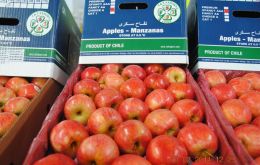
The European Union and Chile have started negotiations in Brussels for the renewal of the Association Agreement. The first round was held in November and the Commission subsequently launched a consultation aimed at the sectors affected in order to find out their opinions on the issue. This process is planned to conclude on 19 February.
